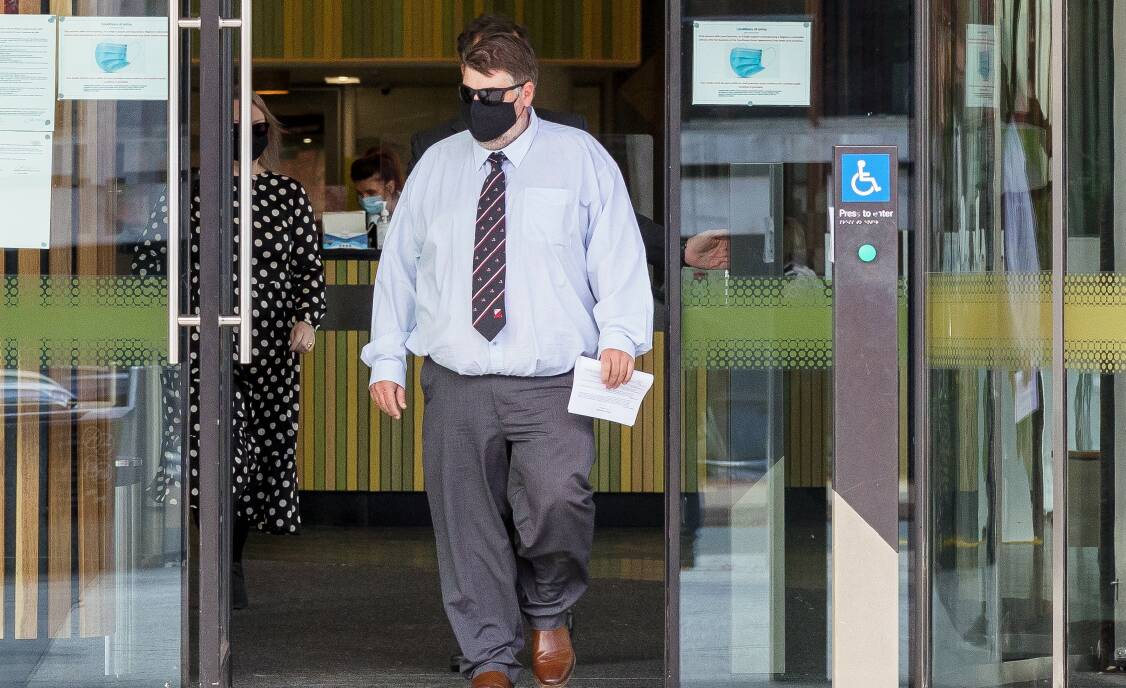
A narcissistic gambling addict fleeced his former employer of nearly $250,000 with a dodgy shipping container scheme that rocked his colleagues to the core.
Linton David Snowden, 46, was sentenced in the ACT Supreme Court on Friday to three years and 10 months in jail for theft and obtaining property by deception.
Justice David Mossop ordered the fraudster, who had previously pleaded guilty, to serve 14 months of the term behind bars before the balance is suspended.
Snowden was a Canberra sales manager at Royal Wolf, a company that sells shipping containers, when he systematically stole from the business between November 2016 and May 2020.
During that period, he sold containers purportedly on behalf of the company but directed 49 separate payments, worth a total of $230,567, to his personal bank account.
Justice Mossop said this had given rise to the fraud charge.
The theft charge related to a further six payments, totalling $18,130, which were made in cash and "pocketed by the offender".
Snowden's three-and-a-half years of deceit came to an end when a colleague identified accounting anomalies and a regional manager was alerted to "missing containers".
When Snowden was confronted by his superiors, he said: "You got me. I've been stealing containers and selling them."
The offender confessed that he had been swindling Royal Wolf, where he worked for about 13 years before being stood down, in order to support a gambling addiction.
Notwithstanding the admissions he made after being rumbled, Snowden declined to co-operate with the subsequent police investigation and initially pleaded not guilty.
He formally admitted his guilt in the ACT Magistrates Court in May after dozens of charges were "rolled up" to encompass the many transactions involved in his offending.
Friday's sentence hearing began with prosecutor Morgan Howe reading to the Supreme Court a victim impact statement authored by Royal Wolf regional manager Chris Tolhurst.
Mr Tolhurst wrote that the impact of Snowden's "avaricious behaviour" on the business had been massive, saying the initial financial loss was "just the beginning".
He detailed how "an enormous amount of time and money" had to be spent on understanding how Snowden, "a trusted employee", had ripped the company off.
Mr Tolhurst added that "a lot of tears" were shed as Snowden's co-workers, who had considered him family, came to terms with the 46-year-old's "extreme" betrayal.
"We've had a strong, collegiate, open and honest culture in our business, which has made us market leaders," his statement said.
"The theft rocked our people to the core, totally undermining the values of 'integrity' and 'working together'."
In sentencing, Justice Mossop noted Snowden had exploited a position of trust in order to commit offences that had netted him a lot of money despite not being very sophisticated.
"[Snowden's scheme] was carried out for the purposes of gambling, a fundamentally pointless and costly entertainment activity," the judge said.
He added that the offender had, since his crimes were detected, acknowledged his "out of control" addiction and "gone cold turkey".
The court also heard Snowden's Jerrabomberra home had been restrained as part of confiscation of criminal assets proceedings to recover the stolen money, preventing him from enacting a plan to remortgage the property in order to reimburse Royal Wolf.
Justice Mossop said it was "odd" that Snowden's willingness to repay the stolen funds had been "frustrated" by this process, which was now likely to culminate in the house being liquidated and the amount in question being paid to the ACT government.
He noted that Royal Wolf's losses had, however, been "made good" by insurance payments, turning the company's insurer into an "indirect victim" that would remain out of pocket.
Snowden, who has been diagnosed with narcissistic personality disorder, will be released from prison in September 2023.
He will then be subject to a good behaviour order for the remainder of his sentence.







